'Frustrating, stressful': The challenges faced by adults who develop allergies later in life
Doctors said adults can develop allergies to foods and other substances that they have tolerated for years.

Ms Teo Ying Ying, 27, looking at instructions on an EpiPen, which delivers adrenaline to stop a severe allergic reaction, on Jul 15, 2025. (Photo: CNA/Ooi Boon Keong)

This audio is generated by an AI tool.
In February this year, a typical day for Ms Teo Ying Ying turned into a distressing hospital visit and a confronting new chapter of her life.
The 27-year-old music teacher had enjoyed her favourite Indian rojak for both lunch and dinner, ending the day with a bowl of her mother's herbal soup.
It wasn't long before her eyes started to itch and water uncomfortably. Then, she began sneezing uncontrollably, broke out in hives and struggled to breathe. She had never experienced an episode like this.
She was rushed to the hospital, where doctors found that her oxygen levels had fallen to 93 per cent, a level where medical evaluation is advised. She was given an injection of epinephrine, administered steroids and placed on oxygen to stabilise her condition.
Epinephrine, also known as adrenaline, is the first-line emergency treatment for severe and immediate allergic reactions such as anaphylaxis, which can affect breathing and blood circulation.
Doctors told Ms Teo that she was most likely having an allergic reaction, but they were unsure of what caused it and advised her to carry an EpiPen until she could be tested for the condition.
An EpiPen is an emergency injection that delivers adrenaline to stop a severe allergic reaction.
Ms Teo said that in those initial months before she was tested, she was filled with anxiety and uncertainty, sticking to eating food she knew would not trigger a reaction.
She said she carried her EpiPen with her, even if she was just going to buy food near her housing block.
Beyond the fear of what might trigger another reaction, what unsettled her most was the sheer unpredictability of it all.
"Suddenly, I'm allergic to something. It feels a bit unfair. All my life, I've been eating all these food items … and I was perfectly fine, and suddenly it decides to happen."
Allergy tests later revealed that Ms Teo was allergic to storage mites, a type of microscopic insect commonly found in dried foods such as grains, flour and spices.
She was told to wash rice thoroughly and avoid consuming food that has been left out too long, as a way to minimise the risk.
"It's definitely great knowing what I'm allergic to, but I can't control (what gets into the food) when eating out," she said.
Unlike a seafood allergy, where she could ask for ingredients to be omitted, storage mites are harder to avoid or detect. They could be present anywhere, whether in flour or food that has been left out for a while, making it nearly impossible to eliminate from her diet.
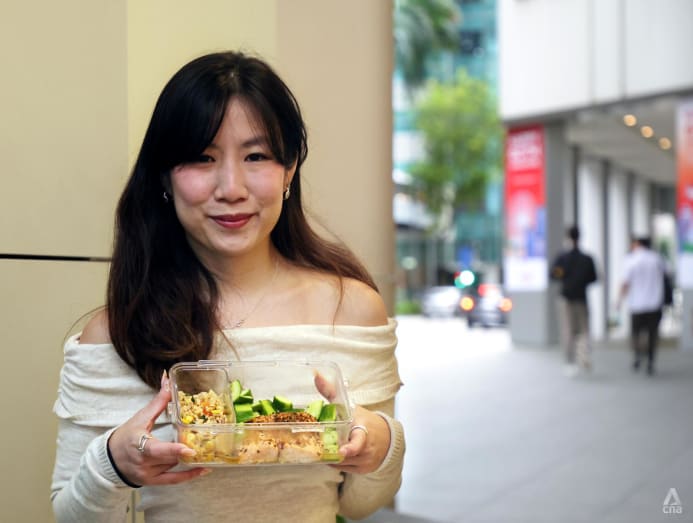
Ms Teo is not alone in developing an allergy later in life.
Ms Tan Hui San, 32, discovered she was suddenly allergic to nuts seven years ago, despite having eaten peanut butter regularly without any problems.
It was not the public relations professional's first encounter with a food allergy. Years earlier, as a teenager, she had a reaction to chicken rice that contained salted fish, which led to the discovery of her shellfish allergy.
"In 2018, I ate some cashew nuts and I started to feel an area of my tongue at the back of my throat starting to swell," she recalled.
Ms Tan also has asthma, so she often feels a tightness in her chest that usually takes a few days or up to two weeks to subside whenever she has a reaction.
Over the years, her nut allergy has worsened, she observed. At first, she avoided only tree nuts; now, she cannot eat chocolate that might contain trace amounts of nuts.
"It's strange because it never used to be so bad. I used to be able to eat, for example, a brand of chocolates and I never had issues with them before. A couple of months ago, I ate some chocolates I always eat and suddenly, I needed my inhaler," she said.
"It feels like a very small thing and it might not seem severe, but living with it is stressful.
"There is this sense of the unknown. Sometimes you eat certain things and you feel like you're okay – and then you're not okay."
As a precaution, Ms Tan carries around her inhaler and doctor-prescribed antihistamines, which are stronger than over-the-counter ones but leave her feeling lethargic.
"I feel like people just don't realise the mental, emotional impact of it (living with allergies)."
DOCTORS REPORT RISE IN ALLERGY INQUIRIES
Doctors from both private and public healthcare clinics told CNA TODAY that they have noticed a steady increase in allergy-related consultations.
The majority of allergy cases in Singapore continue to involve children, but these doctors have noted a growing number of adults developing new allergies as well, although there is very little public data on the trend.
Dr Phang Kee Fong, consultant at the division of rheumatology and allergy at the National University Hospital (NUH), said he has seen "an increasing number of referrals to the adult allergy clinic".
"We are also seeing patients who do develop new food allergies in adulthood, most commonly to shellfish such as prawns and crab," Dr Phang added, noting that studies in adults with allergies are lacking.
"The nature of allergic diseases in adults may be different from what is seen in young children; hence, extrapolating paediatric management to the care of adult patients may not be entirely appropriate."
Dr Tan Wei Jie, a general practitioner (GP) at DTAP@Orchard clinic, sees around two to three patients a week who ask for allergy tests and treatment. He said that the numbers have gone up over the past two years. His patients are mostly children and teenagers, but there are adults as well.
Many of these cases are mild, but he has observed a broader range of conditions, from skin rashes to more severe allergic reactions, particularly among children.

At KK Women's and Children's Hospital (KKH), Dr Chong Kok Wee, head of its paediatric allergy service, noted a rise in the incidence of food allergies among children, with the prevalence at 5 per cent.
Between 2015 and 2022, the hospital's emergency department saw nearly 2.5 times more visits for food-induced anaphylaxis, he said.
He added that the growing number of cases was "likely due to a true rise in disease prevalence", which was compounded by heightened awareness and improved diagnostic tools.
Dr Chong is the co-investigator of a new clinical study announced last month that aims to answer questions about the prevalence and impact of food allergies among children in Singapore.
The four-year study is being led by NUH and the National University of Singapore (NUS) Yong Loo Lin School of Medicine, in collaboration with KKH, National University Polyclinics (NUP) and NUS Saw Swee Hock School of Public Health.
Named the Singapore Food Allergy Story, it is the first and largest study to provide a holistic overview of the burden of food allergies in Singapore, a media release by the health institutions stated.
ALLERGIES CAN OCCUR ANY TIME IN YOUR LIFE
Although allergies are often associated with childhood, doctors who spoke to CNA TODAY said that these can develop later in life and sometimes in response to substances previously tolerated.
"There are cases where individuals may develop an allergy to a product that they have used for a period of time," Dr Tan the GP said, adding that this could include familiar foods, skincare products or pets.
He also said that many people wrongly assume long-term exposure guarantees safety, but this is not so because the immune system can suddenly change its response.
Dr Phang, who sees patients at Alexandra Hospital and NUH, said: "A patient could have been exposed to a substance without issue for years, but a combined effect of environmental factors, infections and genetic factors can cause the immune system to recognise it now as a threat."
Dr Uma Alagappan of TDC The Dermatology Clinic said that for patients with severe eczema, a skin condition, they may develop more allergies over time. This may occur later in life, and treating the eczema will help to reduce the number of allergies.
She also said that shellfish and avocado allergies usually develop due to cross-reactions.
Cross-reaction (or cross-reactivity) in allergies happens when the immune system mistakenly identifies one allergen as another because their proteins share a similar structure.
This can cause allergic reactions to substances even without exposure, simply because they are biochemically similar to the one already causing an allergy for the patient, Dr Uma explained.
Dr Chong from KKH said that the cause of food allergies is likely multi-factorial and a result of the complex interplay of genetic, environmental and lifestyle factors during early childhood.
He said allergic conditions tend to follow a progression known as the "atopic march", where eczema in infancy may give way to food allergies and eventually, to respiratory conditions such as allergic rhinitis, a type of inflammation in the nose, or asthma.
Dr Lee Hwee Chyen, a dermatologist in private practice at Epi Dermatology & Laser Specialist Clinic, said that urban living, changes in dietary habits and reduced exposure to natural environments in early childhood may play a role in increasing allergy sensitivity.
Agreeing, Dr Chong said one key theory that might explain the rise in food allergies in Singapore is the "hygiene hypothesis".
"Our modern and cleaner urban lives have reduced our early exposure to microbes that are crucial for training a child's immune system," he added.
"Ironically, a more sterile environment may inadvertently be increasing our allergy risks by not allowing the immune system to learn what is harmless or harmful."
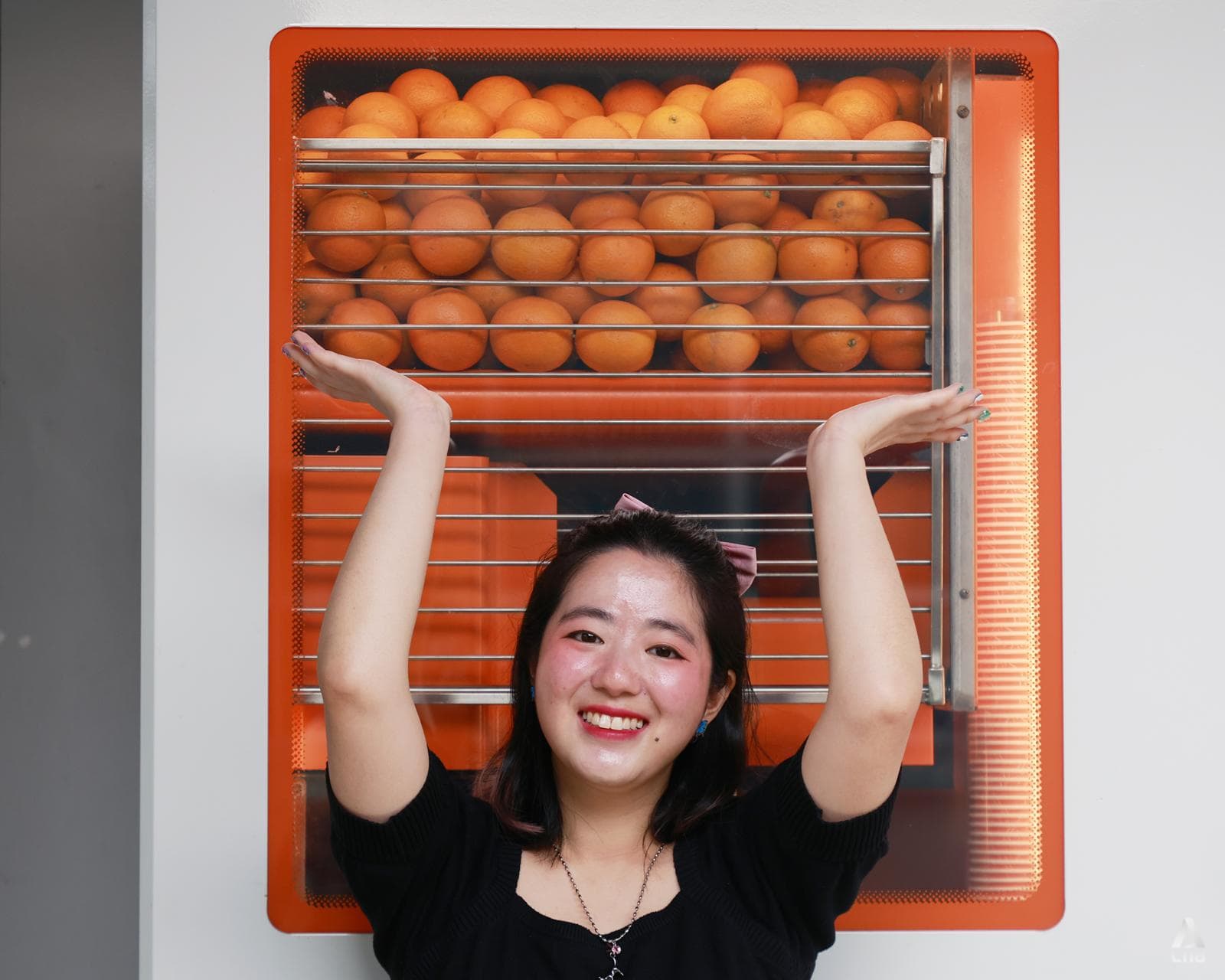
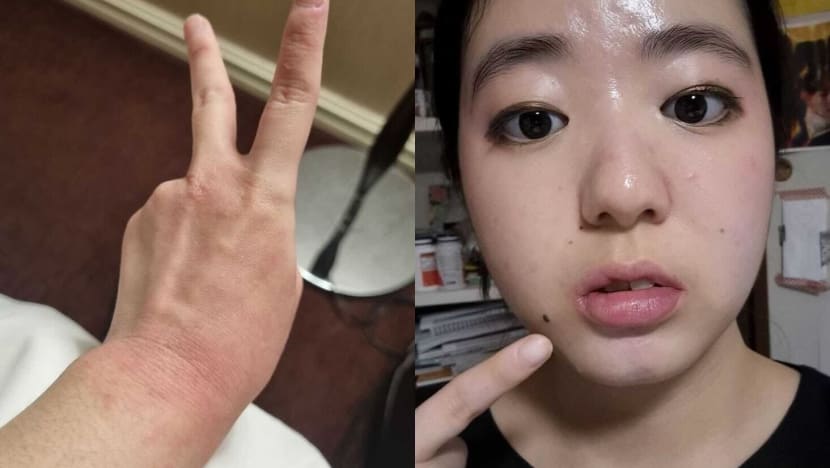
LIVING WITH ALLERGIES IN FOOD-OBSESSED SINGAPORE
Although 29-year-old civil servant Rae Teo has lived with allergies since childhood, she said her allergies escalated rapidly in adulthood.
She had been allergic to nuts, shellfish and bananas from birth, but she began developing new allergies during her university years, including reactions to mushrooms, brinjal, parmesan cheese, most fruits, as well as dust and storage mites.
She makes it a point to avoid cuisines that are likely to contain allergens, but dining out can be challenging because not all workers at eateries are equipped to manage food allergies.
She recalled an incident when she was dining out with colleagues and had asked a staff member to confirm that a pasta dish did not contain mushrooms due to her allergy.
Despite assurances from the restaurant, including a check with its head office, the dish was served with mushrooms that were clearly visible. When she pointed this out, the staff member insisted that it was mushroom-free, much to her frustration.
"It's kind of like playing Russian roulette every time I eat," she said. "Sometimes, I worry I'll wake up tomorrow and I'm suddenly allergic to something that I like.
"I used to really not enjoy eating in general, because it was such a stressor. The uncertainty is quite burdensome, but I've also learnt to live with it."
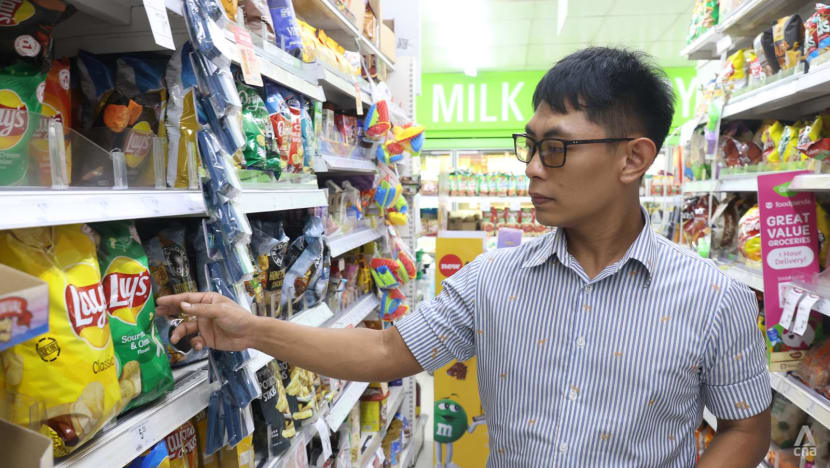
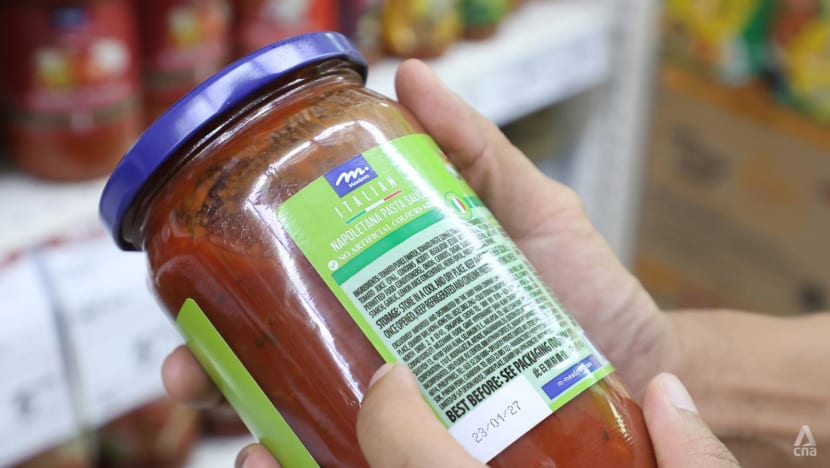
Mr Joshua Shih, 34, who has a gluten and dairy intolerance, said looking for food options in Singapore can be an ordeal.
Gluten intolerance is a sensitivity to foods containing wheat, barley or rye, including sauces such as soy or oyster sauce used in Asian cooking.
"I went to Raffles City shopping centre because I know most gluten-free options tend to be in the central region, especially around City Hall," the administrative executive said.
"But it was so frustrating, I went to all the floors, checking menus non-stop. I was exhausted. I just wanted a simple meal, but I couldn't find anything that was purely gluten-free. Eventually, I broke down in public."
A spokesperson for Raffles City, however, said that the mall has several F&B tenants including The Soup Spoon and Prego that offer gluten-free options, either upon request or as part of their regular menus.
Beyond the physical toll, having allergies in Singapore can result in social and cultural isolation.
Human resources director Julie Lee, 54, said there were times at previous workplaces where she felt left out and "not welcome" because of her allergies.
Ms Lee has eczema that is exacerbated by various allergens, including beef, prawns, dairy, alcohol and nuts.
"One of them (a colleague) said to me: 'It's hard to include you because of the kind of food you want to eat. You're so different and we have to cater to you'."
When travelling for work, Ms Lee often informs organisers about her food allergies in advance of group dinners. However, her dietary requirements are sometimes oversimplified or ignored, and they simply order vegetarian food for her.
"But I'm not a vegetarian. I can eat pork, chicken or fish. I just need them to understand my specific allergies," she said.
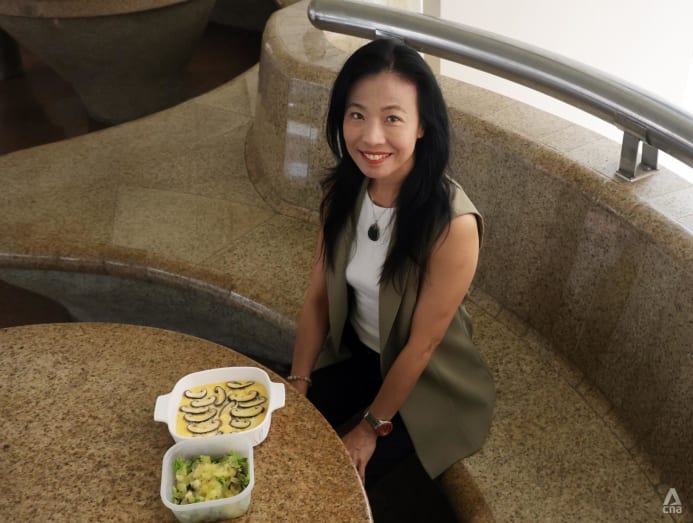
For those living with allergies, there are times when even loved ones fail to recognise the seriousness of their condition.
Ms Teo said that her godmother once tried to sneak peanut oil into one of the dishes she was cooking, hoping that gradual exposure might cause the allergy to go away.
"I remember feeling extremely hurt," Ms Teo said, likening it to how some people would often dismiss mental health conditions by not taking them seriously.
However, not all allergy sufferers face negative experiences.
One standout experience for Mr Shih was at Jumbo Seafood restaurant, known for its iconic chilli crab, a favourite dish of his.
While the dish typically contains gluten, a staff member offered to make it gluten-free for him, because the chef was well-versed in preparing dishes for customers on gluten-free diets.
"It was awesome. I got to enjoy the dish with my friends. It was a really pleasant experience."
Ms Ainul Razib, in her late 20s and who works in the technology sector, has a peanut allergy and eczema. She said she initially felt left out because she couldn't enjoy dishes central to her cultural identity, such as nasi lemak and satay, due to the risk of cross-contamination or the use of peanut oil in cooking.
"From a cultural perspective, when you're not able to eat foods that are quintessential of your cultural identity, it feels like you can't relate."
All her family members love satay and they now make it a point to double-check whether it has been prepared with peanut oil, as a show of support and care.
"I hope people will be more open to those of us who have allergies, and to know that we have to avoid things that you might love, not because we want to offend you, but simply because we cannot eat those items," she added.
Ms Rae Teo the civil servant said that some of her close friends take her allergies seriously, maintaining a list of "Rae-friendly" eateries and proactively shortlisting places where she can dine, relieving her of the constant burden of deciding where to eat.
"It's already difficult enough, having to think about every meal in such a way," she added.
"So if you could take some of the mental burden away, or also assure your friends with allergies, that it is not a burden, it's just another form of care. I think that's something that I will appreciate, or I think people with allergies will appreciate."












